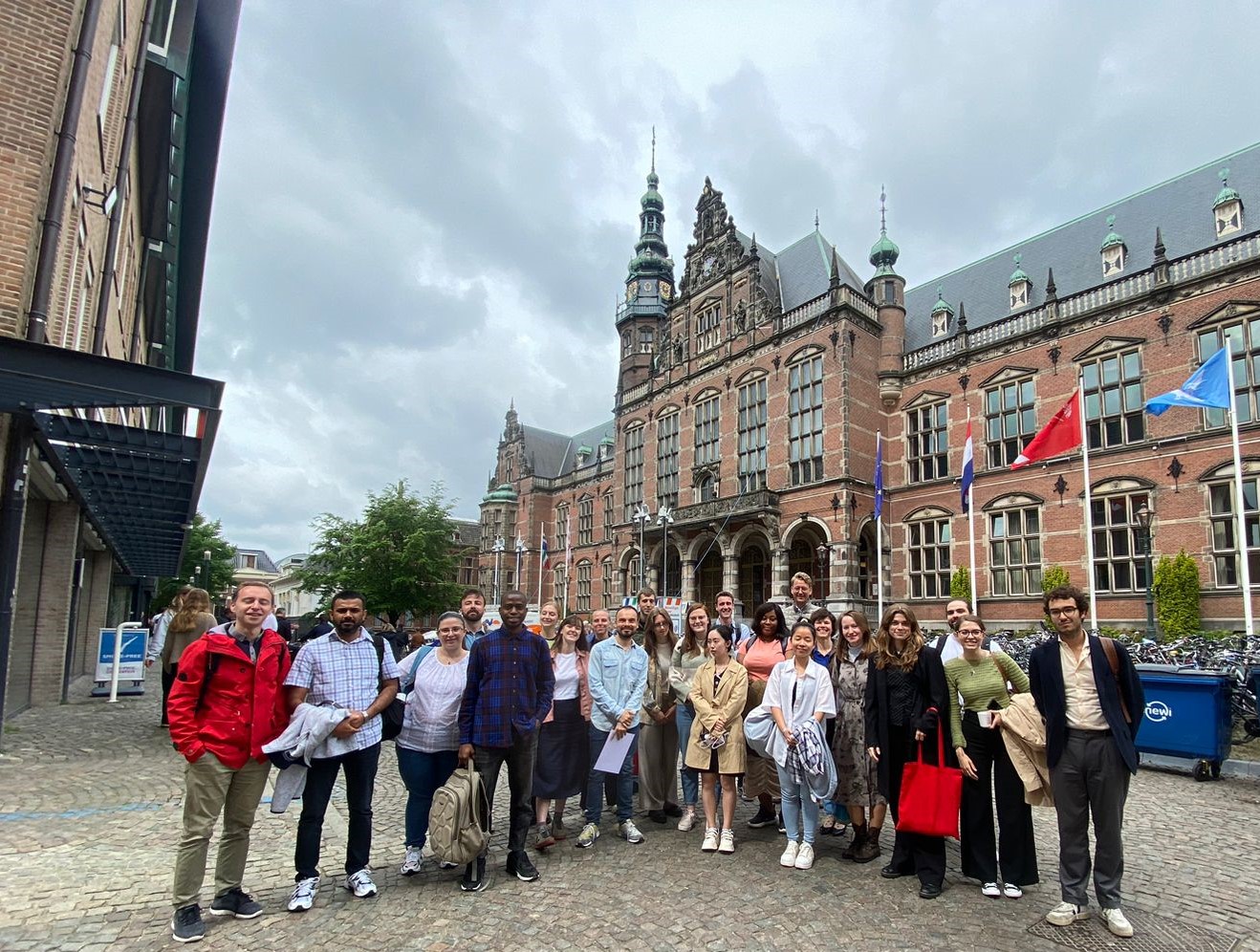The Speak Up project is a collaborative initiative aimed at improving dialogue and collaboration between governments and citizens to tackle pressing societal challenges. Anne Eichholtzer, Namkje Koudenburg and Lise Jans from the University of Groningen are researching how to promote inclusive and meaningful participation among citizens. Their contribution particularly focuses on better understanding the influence of group dynamics and how to create constructive exchanges, even in polarizing contexts.
What is your role within the Speak Up project?
Public participation initiatives, like citizen panels, are not commonplace, and there is relatively little research on how to best organize them so that they are inclusive and efficient. This is particularly important when addressing challenges that require broad acceptance and involvement from the population, such as climate change transitions. There is also no “one size fits all”, and we need to understand how to organize public participation in different contexts e.g., depending on how polarizing a topic is or what demographics are involved. It is especially relevant as key aspects of the Speak Up project are to include more representative and diverse communities, and to defuse polarization.
Along with two other research institutes in Belgium and Denmark, we are what we call a “knowledge partner”. We work alongside local governments conducting public participation initiatives, to evaluate and provide tailored insights based on scientific literature and lessons we learn from initiatives as they progress.
At the University of Groningen, we leverage our expertise in group psychology and citizen engagement to study the influence of group dynamics during public participation. Through literature reviews and field experiments, we seek to identify factors that contribute to, or hinder constructive dialogue among citizens in various settings - and expand our knowledge base of “best practices”. These social processes are often overlooked, and we are looking forward to better understanding how to facilitate discussions that embrace diverse viewpoints and experiences, while avoiding polarization. Through this contribution, we aim to use evidence-based strategies to refine and optimize citizen engagement practices so that both citizens and local governments can benefit from the experience.
"Working alongside Speak Up partners gives us a comprehensive insight into the practical implications of our research, ensuring it is both relevant and applicable.”
What inspired you to join the Speak Up project?
Laboratory experiments can offer great insights, but they don't always seamlessly translate into real-world scenarios! Public participation initiatives, like citizen panels or participatory budgeting, are therefore crucial for gathering meaningful data and insights. Being part of the Speak Up project offers a unique opportunity to collaborate with local governments across the North Sea region, and conduct real-world interventions in diverse settings and contexts. This is a very rich environment for research… almost like a "living lab"! Working alongside Speak Up partners also helps us better understand the practical implications of our research, ensuring it is both relevant and applicable in real life.
Can you tell us a bit about yourself and your organisation?
The University of Groningen is located in the north of the Netherlands and serves over 30,000 students. Representing our university in the Speak Up project are Anne Eichholtzer, postdoc researcher, Namkje Koudenburg, Associate Professor in Social Psychology, and Lise Jans, Associate Professor of Environmental Psychology.
Anne comes from an interdisciplinary background and is now part of the Social and Environmental Psychology Lab. Her previous research focused on the co-benefits of citizen science participation and the challenges of engaging a broader, more diverse audience. These challenges closely align with the Speak Up project, which aims to broaden participation and maintain engagement within public participation initiatives.
Namkje brings expertise in communication and group dynamics. Through lab and field studies, she has explored the impact of communication on societal change, including its potential to either create polarization or drive positive change. Our work within the Speak Up project provides an opportunity to apply this knowledge, particularly to defuse polarization and promote constructive dialogue within communities.
Lise researches how group processes can contribute towards sustainable transitions, with a specific focus on creating change from the bottom-up. Through interdisciplinary collaborations, she studies how community-led projects, like local energy initiatives, can change people's norms and shared identities - thereby facilitating these transitions. The Speak Up project enables further understanding of how government-led initiatives potentially influence similar changes within citizens.
What are some initiatives from your organisation that you are proud of?
At the University of Groningen, we are always busy with a variety of projects and activities. For example, our Summer Schools are week-long events that bring together international researchers and stakeholders, to connect and collaborate on a particular topic. In July, Namkje co-organized a Summer School on Polarization to inform our scientific community about our on-going work. Back in June, Lise and Anne were also involved in the Summer School on "Public Participation in Sustainable Transitions'', in cooperation with the New Energy Coalition and the Ameland Energy Cooperative.

What are upcoming initiatives or events related to Speak Up that you are currently working on?
We are already collaborating with several Speak Up partners in the Netherlands, Sweden, Germany and Denmark. Each collaborator is consulting with their citizens or involving them in decision-making on different topics (housing, climate transition, democracy…). They are also trying to reach more diverse audiences, including youth or residents of rural areas. For example, a research project will include a podcast by the Province of Drenthe (Netherlands), where politicians travel to different villages to engage in discussions with the local population.
These initiatives offer a fantastic chance for us to observe, participate, and learn from different settings and perspectives. This is the core richness of the Speak Up project: learning from each other to better communication and collaborations between citizens, local governments, and other stakeholders.
